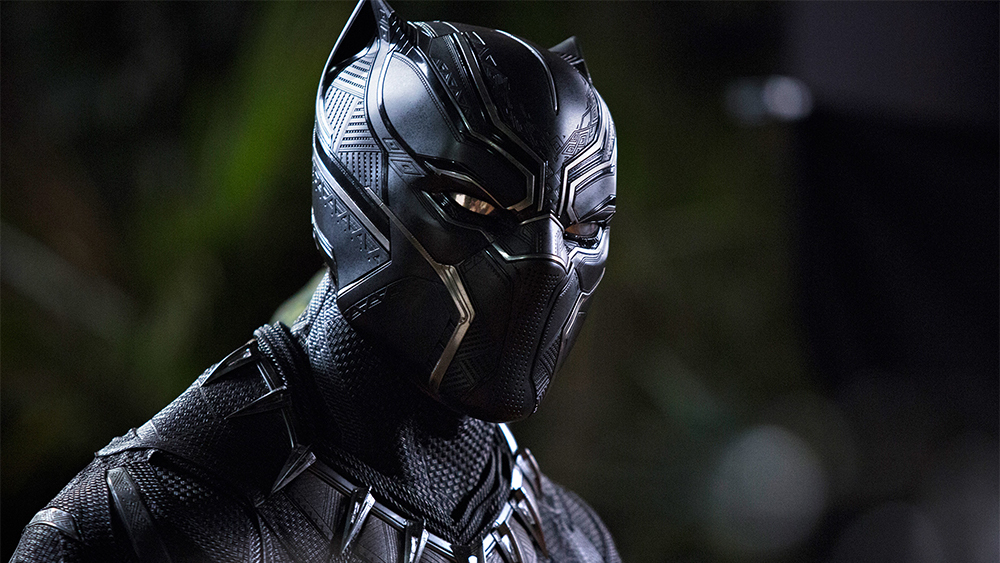
Black Panther is a phenomenon at the box officer and a celebratory moment in changing culture and diversity. As a film though it is not without its flaws but assisted by an able cast it will go down as a blockbuster that resonated with a core audience long overdue their moment. Ryan Coogler is one of the most exciting directors working today and after taking Rocky Balboa to new heights it was interesting to see what he would do with a Marvel superhero film.
The plot picks up from events of Captain America: Civil War where T’Challa (Black Panther) returns to Wakanda following his father’s death to take up the throne but first he must accept challenges from other tribes in the kingdom if he is to assume the throne.
Wakanda is an interesting place with production design inspired by African tribal symbolism and ultra futuristic aesthetics. It’s a neat look that has inspired several audiences who have not seen Africans as royalty or technologically superior. Yet at the centre of all of this is the ruling few who decide who is worthiest in trial by combat. I’m not sure that is a healthy message to be sending. It is only the beginning of big themes that Coogler injects into the blockbuster.
Wakanda is a kingdom cut off from the outside world with wealth and prosperity that it guards well. Ideas of isolationism, immigration, border protection and wealth disparity are all put forward and refreshingly with strong cases being made for both.
At the centre of this is the film’s main villain played by regular Coogler collaborator Michael B. Jordan as the villain Killmonger. We probably don’t want to go into too much spoiler territory here but Killmonger in a lot of ways represents African-Americans cut off by their roots and a militant response to African diaspora.
Black Panther
In perhaps the film’s best scene this is articulated between a father and a son in a small apartment in Oakland, California. Jordan who has grown into a charismatic leading man is in danger of outshining Black Panther himself but Chadwick Boseman gives T’Challa a quiet dignity, a straight hero surrounded by a more interesting ensemble.
These include Lupita Nyong’o as Nakia, a spy and former flame, Danai Gurira a royal bodyguard Okoye, Daniel Kaluuya as a border tribesman W’Kabi and Letitia Wright as Shuri as a mocking little sister and tech genius. Disappointingly making less impact are Angela Bassett as Queen Ramonda and Forest Whitaker as Zuri a religious figure. As the token white men Andy Serkis and Martin Freeman have fun but this film belongs to the black cast.
The plot so to speak is more concerned with themes then a particularly rich story with thinly connected set pieces. All of the above characters are effectively sounding boards for T’Challa to hear a different point of view. You can’t help but wonder if an amicable chat couldn’t have solved most of the problems the characters face but then again maybe that’s the point.
T’Challa’s character arc is to learn how to be a good leader and he learns this from engaging with his mirror image found in Killmonger. It’s an age old story but executed well. As for the set pieces the one with the most humour and interesting ideas is in the centre of the movie with a fight scene in an underground Korean casino followed by a car chase through Busan.
You also can’t help but notice a lot of CGI in the mix that makes the action less grounded and suspenseful. Still the look of the film is original and gorgeous. This is a frustrating film in the sense that when a line lands with resonance you can see why audiences have been so deeply affected but character motivations sometimes only occur for plot convenience and a better film would have avoided being undermined like that.
Still a return to Wakanda and these characters remains a draw and this film lays the groundwork for all of kind exciting new directions and character development. Wakanda Forever indeed.
-Lloyd Marken

